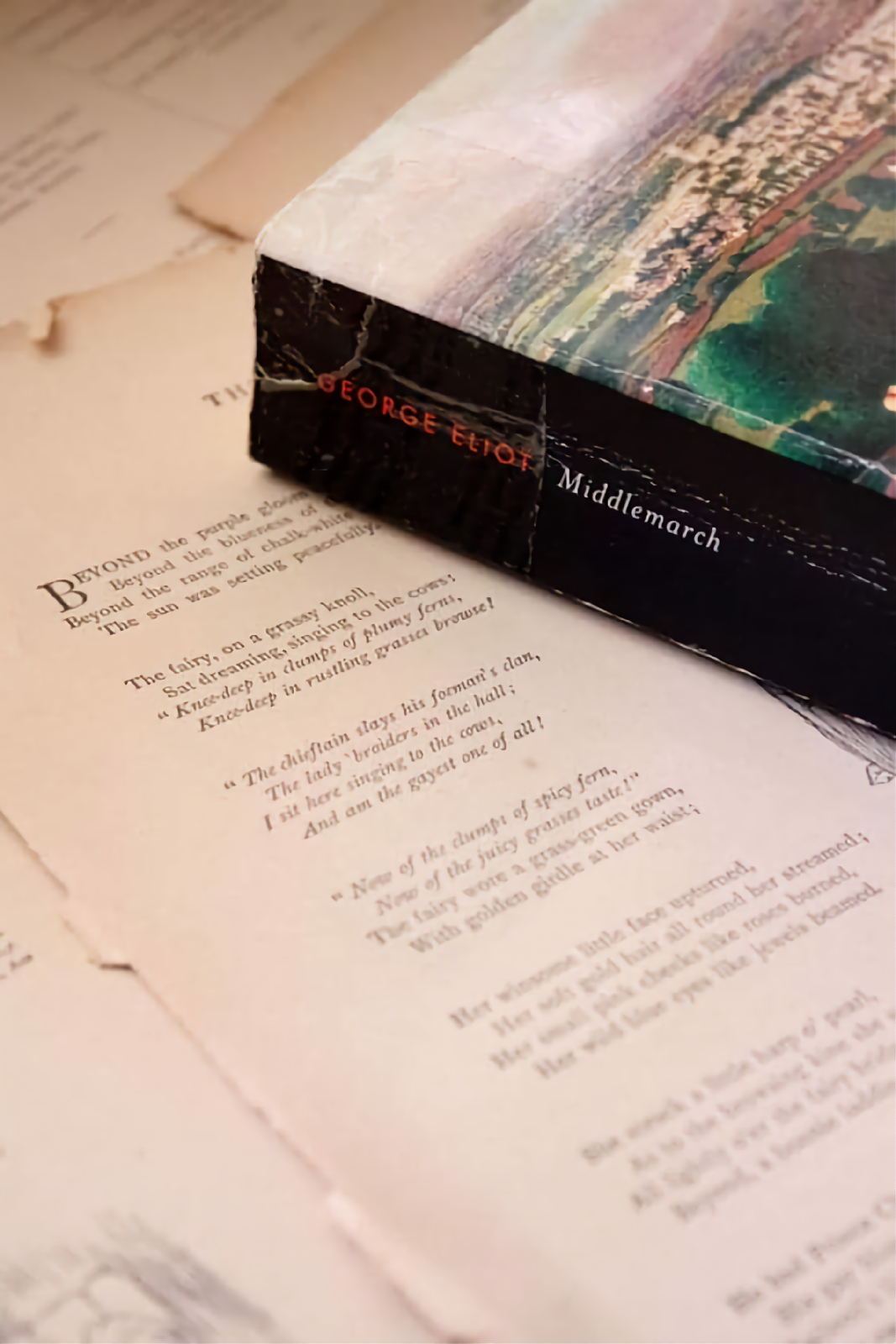"Middlemarch," authored by George Eliot, stands as a seminal Victorian novel, capturing the essence of life in the fictional town of Middlemarch, England.
"Middlemarch," authored by George Eliot, stands as a seminal Victorian novel, capturing the essence of life in the fictional town of Middlemarch, England. Set between 1829 and 1832, it intertwines the lives of diverse characters, offering a rich exploration of human ambition, societal norms, and the intricacies of personal relationships. The novel is particularly noted for its deep character studies, notably of Dorothea Brooke and Tertius Lydgate, whose journeys reflect a poignant contrast between idealism and realism.
Dorothea Brooke, an idealistic and intellectually curious young woman, seeks a meaningful life but is thwarted by her stifling marriage to the older Casaubon. Her emotional and intellectual frustrations are mirrored in her growing closeness to Will Ladislaw, a young artist, underscoring the societal constraints and personal struggles in her quest for fulfillment. In contrast, Tertius Lydgate is an ambitious physician whose dreams of medical innovation are challenged by financial strains and the conservative medical community. His marriage to Rosamond Vincy, a materialistic woman, exemplifies his gradual compromise of ideals in the face of societal pressures.
Beyond these central figures, "Middlemarch" vividly portrays a spectrum of characters, from ambitious entrepreneurs to beleaguered artists, each embodying distinct challenges and aspirations. This mosaic of characters creates a detailed depiction of provincial life, delving into universal themes of love, ambition, and the limitations imposed by social norms.
The novel excels in its thematic depth, exploring illusions, social commentary, and psychological realism. Eliot examines the clash of idealism with the harsh realities of society, particularly through Dorothea and Lydgate's experiences, leading to a poignant sense of disillusionment. The narrative critiques the rigid Victorian social hierarchy and gender roles, revealing the era's constraints and injustices.
Marriage, a central theme, is portrayed in its complex entirety, ranging from Dorothea's unhappy union to other varied marital experiences. Eliot presents marriage not as an ideal but as a multifaceted social and emotional institution. The characters' moral choices and motivations are depicted with nuance, eschewing clear-cut heroes or villains, and instead offering a deep analysis of their often flawed actions. This psychological realism fosters empathy and understanding for their choices.
"Middlemarch" is lauded as one of the greatest English novels, celebrated for its intricate storytelling, complex characters, and incisive social critique. Its timeless themes and psychological depth maintain its relevance and classic status. Though its length and complexity may pose a challenge to modern readers, the novel remains a timeless masterpiece, offering profound insights into Victorian life and the enduring complexities of human nature.


